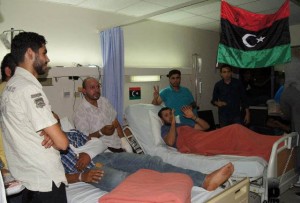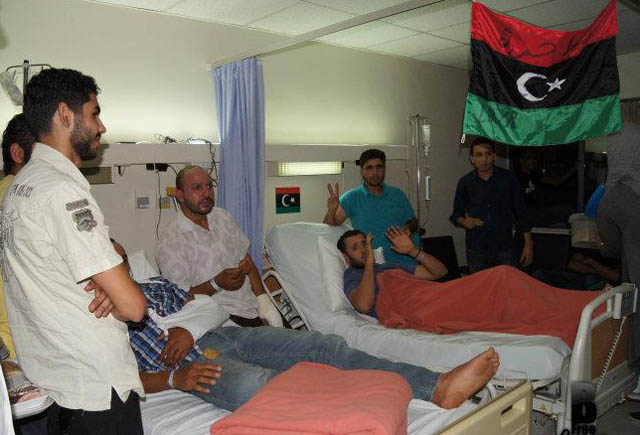By Nihal Zaroug.
Tripoli 24 June:
Outstanding medical and hotel bills incurred by Libyans who sought treatment in debt stricken Jordan, continue to . . .[restrict]cause problems for the many private hospitals and hotels, threatening some with bankruptcy and closure according to local reports.
The World Bank had ranked Jordan as the top medical destination in the MENA region and fifth in the world. Tourism and medical travel are major contributors to the country’s economy. Sluggish growth in 2011 is attributed to a 18 percent drop in tourist arrivals. The number of Syrians who accounted for one-third of all tourists fell by 23 percent last year.
Libya’s delay in paying bills is exacerbating an already difficult situation and with the beginning of summer, Jordan expects some tourists, even if their numbers are small, and they still need accommodation.

As of last month the outstanding amount owed to hotels was $127 million according to the Jordan Hotel Association (JHA). Some $85 million was due to the private hospitals, according to Jordan’s Private Hospitals Association (PHA). Promises to pay bills have been given several times by the Libyan government but the auditing of bills is necessary to ensure authenticity and to uncover any possible fraud.
Medical treatment in Jordan was intended for the wounded fighters and civilians injured during the revolution. However mismanagement of the initiative, which was suspended in February, turned it into a free-for-all, boosting the number who travelled to Jordan to 50,000. Many patients took husbands, wives and children, causing the Libyan government to pay for treatment, travel and accommodation for both patients and their relatives. This is the sort of fraud that the government is hoping to uncover by auditing the assembled bills.
Both the JHA and PHA have been the leading movers trying to secure bills payments. They have warned several times that services provided to Libyan’s would be suspended if bills remained unpaid. Reportedly some hotels have evicted Libyans. Meanwhile both Libyans and hotel owners have protested at the Libyan embassy in Amman, over the failure to pay outstanding bills.
Last month, the Libyan Central Medical Committee and Jordan’s Royal Medical Services (RMS) signed an accord to provide treatment for Libyan patients and training for medical staff at the RMS hospitals. In spite of the discouraging delay in bills settlement, the signing of the agreement signals a wish for both countries to continue cooperating. It also signals a move away from providing treatment at private hospitals, as the RMS hospitals are attached to the Jordanian Armed Forces. [/restrict]







